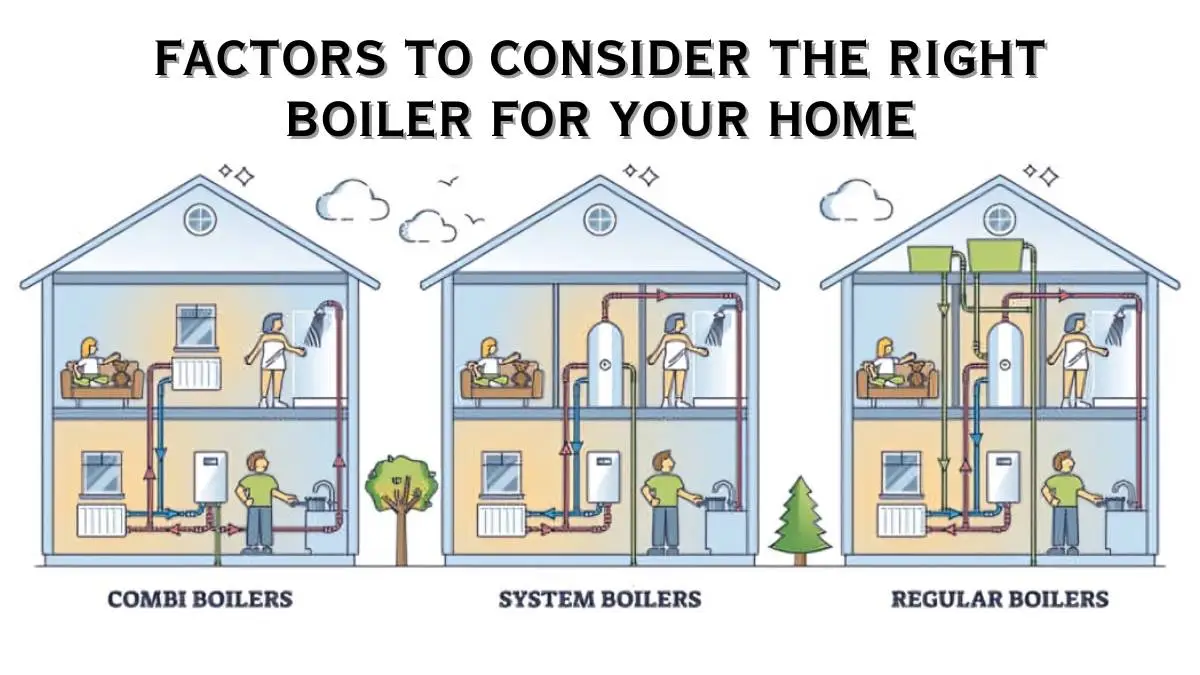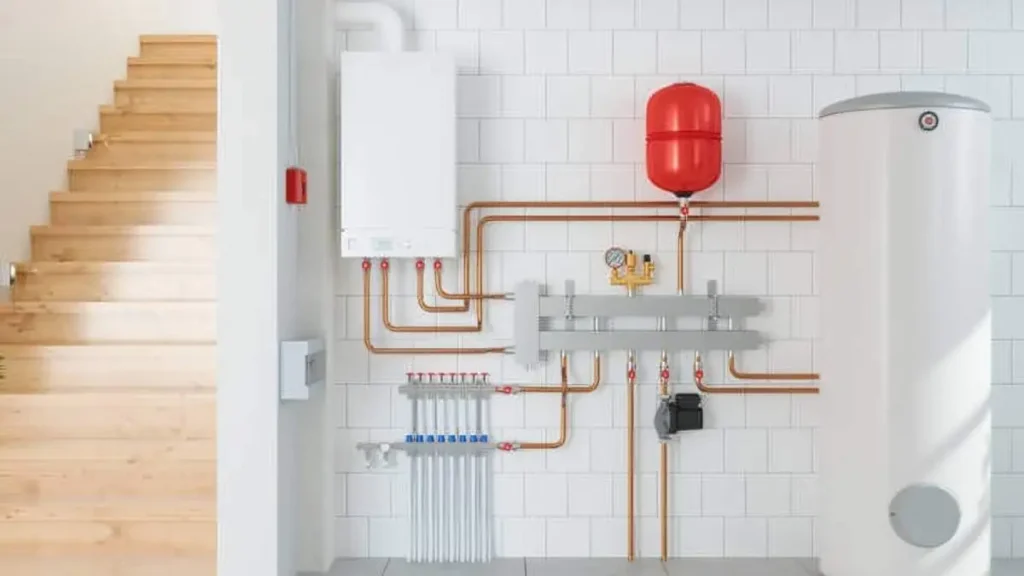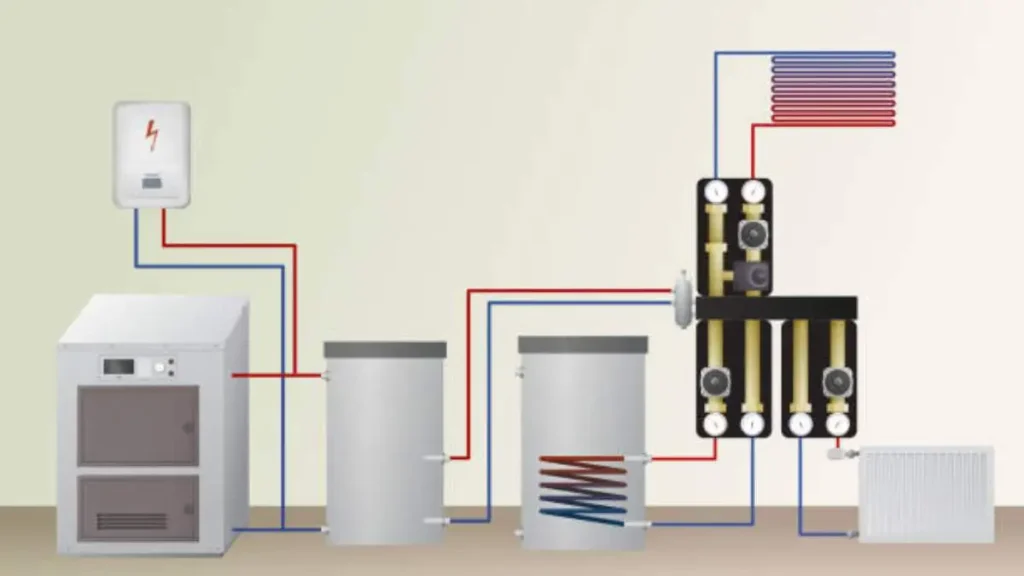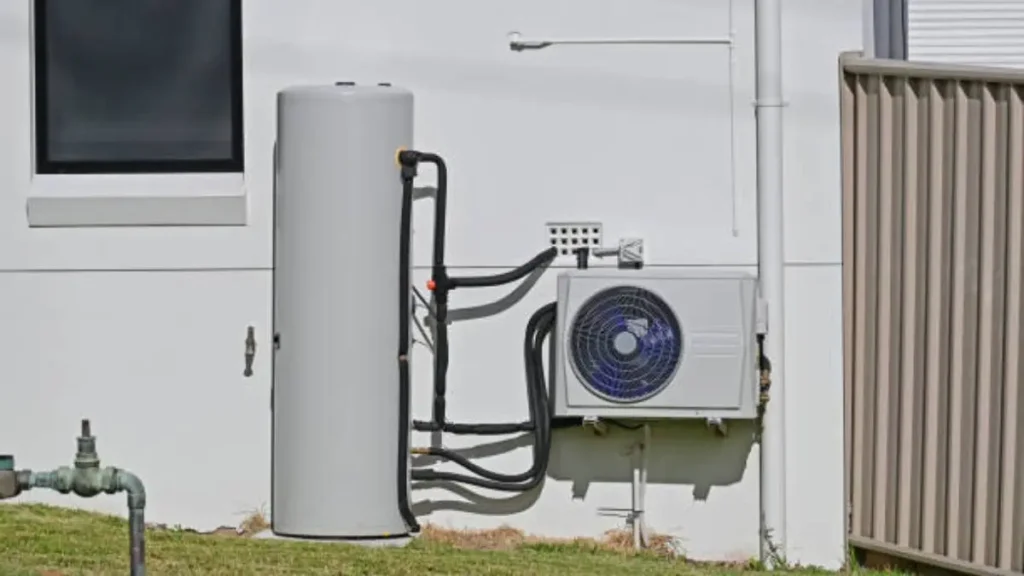HOME IMPROVEMENT
Factors to Consider When Selecting the Perfect Boiler for Your Home

Selecting the right boiler for your home is a crucial decision that impacts your comfort, energy efficiency, and heating costs. With various types of boilers available, it’s essential to understand the key factors that should guide your choice. This article explores these factors, helping you make an informed decision that suits your specific needs and preferences.
Table of Contents
Your Home’s Heating Requirements
Assessing Your Needs
Before choosing a boiler, assess your home’s heating requirements. Consider the size of your property, the number of rooms, and your family’s hot water usage. Larger homes with multiple bathrooms may need a boiler with higher capacity, while a compact unit might adequately serve smaller apartments. Understanding your heating needs ensures you select a boiler that provides consistent and efficient heating.
Peak Demand
Consider peak demand times when selecting a boiler. If your household tends to use a lot of hot water simultaneously (e.g., multiple showers in the morning), you’ll need a boiler that can handle this load without losing efficiency. Combi boilers are popular for their ability to provide instant hot water but may not be suitable for high-demand scenarios. A system or regular boiler with a hot water cylinder might be more appropriate in such cases.

Energy Efficiency
Efficiency Ratings
Energy efficiency is a critical factor when choosing a boiler. Look for boilers with high-efficiency ratings, which are often labeled as A-rated. High-efficiency boilers use less fuel to produce the same amount of heat, reducing your energy bills and environmental impact. Consider models with features like condensing technology, which improves efficiency by recycling waste heat.
Long-Term Savings
While high-efficiency boilers might have a higher upfront cost, the long-term savings on energy bills can make them a more economical choice. Calculate the potential savings over the lifespan of the boiler to understand the true value of investing in an energy-efficient model.
Fuel Type
Gas Boilers
Gas boilers are a common choice due to their efficiency and relatively low operating costs. If your home is connected to the natural gas grid, a gas boiler can be an excellent option. They provide quick and reliable heating and are available in various sizes to suit different homes.
Oil Boilers
Oil boilers are suitable for homes not connected to the gas grid. They require a storage tank for the oil, which needs regular refilling. While oil prices can fluctuate, oil boilers can be very efficient and are a reliable alternative for rural homes.
Electric Boilers
Electric boilers are ideal for homes without access to gas or oil. They are easy to install and maintain and produce no on-site emissions. However, electricity is typically more expensive than gas or oil, which can result in higher running costs.
LPG Boilers
LPG (liquefied petroleum gas) boilers offer flexibility and efficiency similar to natural gas boilers but are suitable for homes not connected to the gas grid. They require a storage tank and regular deliveries of LPG.
Installation and Maintenance
Professional Installation
The quality of installation significantly impacts the performance and lifespan of your boiler. Always hire a professional, certified installer to ensure the boiler is set up correctly and safely. Professional installation reduces the risk of malfunctions and enhances the boiler’s efficiency.

Ongoing Maintenance
Regular maintenance is essential for keeping your boiler in good working condition. Consider the availability and cost of maintenance services when choosing a boiler. Some manufacturers offer maintenance packages, which can be a convenient and cost-effective way to ensure your boiler receives regular check-ups and servicing.
Space and Aesthetics
Size and Location
Consider the available space for your boiler. Combi boilers are compact and can be installed in a kitchen cupboard, making them ideal for homes with limited space. System and regular boilers require more space for the boiler unit and a hot water cylinder. Ensure you have adequate space for the type of boiler you choose.
Aesthetics
While boilers are typically installed out of sight, aesthetics can still be a consideration, especially for smaller homes where the boiler might be in the kitchen or a visible area. Modern boilers are designed to be more visually appealing and compact, blending seamlessly with contemporary home designs.
Professional installation services, like those offered by MPH Boilers, ensure that your boiler is installed correctly and operates efficiently. With the right boiler and expert installation, you can enjoy a warm, comfortable home with reduced energy costs and minimal environmental impact.

Environmental Impact
Green Options
If environmental sustainability is a priority, look for boilers that can integrate with renewable energy sources. Solar thermal panels, heat pumps, and biomass boilers are green alternatives that can reduce your carbon footprint. Some modern boilers are designed to work with these renewable systems, providing an eco-friendly heating solution.
Emissions and Energy Use
Choose a boiler with low emissions and high energy efficiency to minimize your environmental impact. Condensing boilers, for instance, are designed to be highly efficient and produce fewer emissions compared to traditional boilers.
Budget and Financing
Initial Cost vs. Long-Term Value
Consider both the initial cost of the boiler and the long-term value it offers. While a cheaper boiler might save money upfront, it could be less efficient and cost more to run in the long term. Investing in a high-quality, efficient boiler can provide better value over time through energy savings and reduced maintenance costs.
Financing Options
Explore financing options if the upfront cost of a new boiler is a concern. Many manufacturers and installers offer financing plans that allow you to spread the cost over time. Additionally, check for government grants or incentives for upgrading to a high-efficiency boiler, which can offset some of the costs.
Conclusion: Making an Informed Boiler Choice
Choosing the perfect boiler for your home involves considering various factors, including your heating needs, energy efficiency, fuel type, and budget. By carefully evaluating these aspects and consulting with professional installers, you can select a boiler that enhances your home’s comfort, efficiency, and safety. Investing in the right boiler is not just about immediate comfort but also about long-term savings and sustainability.
-

 GENERAL6 months ago
GENERAL6 months agoChristofle – For Those Who Dream of Family Heirloom Silver
-

 SPORTS8 months ago
SPORTS8 months agoDiscover the World of Football with Streameast: Watch Your Favorite Leagues and Tournaments
-

 GENERAL4 months ago
GENERAL4 months agoUncovering the World of кинокрадко: The Dark Side of Film Piracy
-

 GENERAL2 months ago
GENERAL2 months agoATFBooru: Anime, Gaming, and Subculture Imageboard























